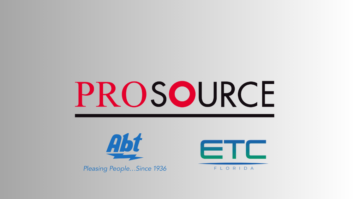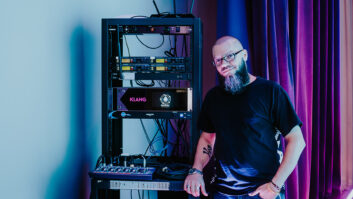The proliferation of portable electronics shows no sign of slowing — which means the battery market should continue to boom in 2002, as manufacturers push the chemical envelope to eke as much power and life as possible out of every type of cell.
It is not just the burgeoning number of digital cameras, cellphones, PDAs and other portable devices, either, that is driving battery development. As those devices increase their functionality, they devour power like never before. And losing power at a critical, or simply inconvenient moment, is not acceptable in today’s mobile lifestyle.
As a result, battery companies are developing, marketing and supporting a wide range of both disposable and rechargeable offerings for 2002, designed to keep consumers in power wherever they may be. The mix encompasses everything from premium alkaline to nickel-metal hydride (NiMH) rechargeables — with ever-more-rapid chargers — to zinc-air power packs, and more.
Electric Fuel, for instance, which launched its first Instant Power battery back-up product for cell phones two years ago, has expanded its line to cover more than two-dozen cellphone models and PDAs. The New York-based company is now rolling out units to power digital cameras and camcorders, with ultra-high performance cells for notebook computers being introduced later in 2002, as well.
“Cellphones and PDAs are generally used every day, but a camcorder may sit in the closet until you grab it to capture a moment, only to find that the battery is dead,” said Jonathan Whartman, marketing VP. “That’s where our ready-to-use Instant Power batteries are a perfect solution. Plus, they have a 3300 mAh capacity that provides up to 10 hours of continuous use — which is far more than the camcorder’s standard rechargeable battery would allow before being drained.”
Electric Fuel’s new batteries initially support Sony and JVC camcorders and Nikon and Sony digital cameras, but additional brand support will be added soon.
The company has also introduced a 2-in-1 Instant Power package for cellphones and PDAs. This features an Instant Power cell plus a car adapter; and new packaging will make its debut at CES, incorporating photos of a model using the Instant Power battery to help consumers better understand how the product works. The same theme will appear on point-of-sale displays and other support materials.
While manufacturers see rechargeable batteries continuing an upward sales climb, the fact that consumers are impatient for their power has presented a challenge that a number of companies have tried to solve. This is to reduce the recharging time from what has been in the past as much as eight to 14 hours. Rayovac has managed to drop that time to just one hour, with the Rayovac 1-Hour Charger, enjoying its first full year on the market in 2002.
“Consumers want instant gratification. So over a period of two years, we reconfigured the design specifications of the charger to be able to recharge NiMH batteries in an hour — or even less, if the batteries are not fully discharged,” said Merrell Tomlin, executive VP of sales at the Madison, Wis.-based company.
“The second challenge was to make the charger mobile, which we accomplished with a design that’s about the same size as many cellphones. Plus, we created a more powerful battery, raising the capacity from 1600 mAh to 1800 mAh, so consumers can use it longer between charges.”
Tomlin sees Rayovac’s 1-Hour Charger and new batteries as being particularly well suited to the digital camera market, which he anticipates will grow tremendously in 2002. For one thing, the NiMH batteries deliver a more constant power source than alkaline for digital cameras and other high-drain applications.
Rayovac will support the 1-Hour Charger and NiMH battery line throughout the year with national freestanding inserts, customized retail promotions and a full gamut of point-of-purchase materials.
For Fair Lawn, N.J.-based Maxell, the NiMH rechargeable business is also a main focus for 2002, with the company’s new P2001 “smart charger” set for introduction at CES. Packaged as a recharger, with a set of four AA batteries, the new product is positioned to be an excellent consumer value at an approximate retail price of $19.99 to $24.99.
“We’re surrounding the product launch and ongoing support with a comprehensive marketing communications campaign to ensure that the features and benefits are well presented and understood by consumers,” said Peter Brinkman, corporate VP of marketing for the consumer products division.
“Among those benefits are the fact that the charger is smaller and more convenient for travel than most other chargers, plus it automatically detects the amount of charge required for each battery and charges it accordingly. Also, our NiMH batteries have an mAh performance that is equal to or exceeds anything else on the market.”
Maxell is packaging its P2001 in an aggressive, high-octane red-color scheme, and will have a full complement of carded 2-packs and 4-packs of extra AA and AAA in coordinating packaging to create retail impact.
Panasonic is also bullish about the NiMH rechargeable business, which it has addressed with a Deluxe Set of NiMH batteries and charger created exclusively for wholesale club customers. Featuring a five-hour charger, six AA and two AAA batteries, plus two each of special C and D size adapters, the entire blister-carded set retails for $24.95, with a non-expiring $5 mail-in rebate coupon on every package.
The company has also just introduced a new carded 6-pack of AA NiMH batteries to accompany the Deluxe Set. This has a suggested retail of $12.99. For other classes of trade, its package of charger and four AA batteries also carries a $5 rebate off the suggested price of about $24.99 to $29.99.
“Our AA batteries offer 1600 mAh, which is the most power we’ve ever built into our AA NiMH batteries,” said Christine Denning, marketing communications specialist. “That’s important because, while people used to use rechargeables for economy and convenience, today they use them for the added power and longer life required by so many digital applications.”
For consumers who still prefer alkaline, Secaucus, N.J.-based Panasonic offers a line that is specifically earmarked for digital CE applications, as well as its Panasonic Alkaline Plus batteries for less taxing applications. The company backs all the products with extensive point-of-sale materials and display units, as well as a variety of coupon programs. In addition, it will launch in February a special “Seize the Savings” promotion offering $1 off each Alkaline for Digital open stock SKU.
With the natural synergy between batteries and portable electronics, Sony Electronics’ U.S. Energy Group is capitalizing with its Walkman-brand alkaline batteries, which will sport new packaging for 2002. Designed to leverage the Walkman name, the packaging is meant to put a Sony look, feel, and design on the battery business, as well as to provide a more stylish flair to battery merchandising, according to Sony.
“The new packaging is totally different from the typical cardboard blister-pack,” said Richard Latorre, national sales manager for the Park Ridge, N.J.-based company. “It features four AA Walkman batteries in a hard plastic, cylindrical case. The case slides open to remove the batteries; and if consumers only need two at a time, the case slides closed over the remaining two to create an even more compact container. It’s functional, to keep extra batteries together and handy, and it’s also very cool. Plus it takes up less space both inside a purse or pocket and on a retail planogram.”
In addition, Sony is unveiling a new line of rechargeable NiMH batteries for 2002, with a slim, one-hour advanced power charger that also reflects the Sony style of design. Sold in a package with two AA NiMH batteries, the rapid charger is metallic in color and designed to merchandise next to Sony digital cameras or other portable devices. Possible cross-promotions with other Sony hardware products are in the discussion stage.
On the alkaline side, Energizer plans to “keep going, and going” with support for its newly released Energizer Max high-performance batteries. The batteries, which were performance-enhanced last year to run up to 40 percent longer than ordinary alkalines in high-drain devices, are receiving $100 million in marketing support in the United States alone, according to Jackie Burwitz, investor relations VP of the St. Louis-based company.
“Our advertising campaign for Energizer Max batteries just started Nov. 1, so there is a lot of promotional activity surrounding the batteries that will continue well into 2002,” Burwitz noted. “We also enhanced the Energizer e2 super-premium titanium batteries last fall, to run 23 percent longer than when they were first introduced, and will continue to support that line aggressively, as well.”
Sanyo Energy U.S.A., maker of GE/ Sanyo-brand batteries, is taking a broad-based approach to the battery business, and is positioning itself as a category manager for all wireless communications accessories. In conjunction with that direction, the company is launching at CES its Platinum Power Series, a high-end line of batteries and accessories for the wireless communications category. Included are high-end lithium ion and NiMH batteries and chargers, high-capacity alkalines, along with headsets, hands-free items, and more.
“We see batteries as an accessory for portable products, as are carrying cases, headsets, and all the rest,” said Fred Creamer, manager of business development at the San Diego-based company. “So we want to be a full-line supplier of batteries and accessories for retailers, supplying all that they and their customers need — as well as giving retailers the opportunity to sell a premium line.”
A full range of informational packaging and point-of-sale materials has been designed for the Platinum Power Series, including features and selection assistance on each item and cross-reference information to match the right battery or other accessory with the right phone. A floor display is also available to tie the products together.
With its specialization in cordless phone batteries, Gemini Industries will continue to offer a full complement of products for virtually all cordless phone brands in 2002. Carrying forward, as well, is the company’s extensive focus on merchandising, including optimal assortment recommendations, an 800-number fulfillment program and a variety of point-of-purchase aids to help consumers better understand how to match the right battery to their phone.
“We really pride ourselves on the plug matching system we introduced last year, which allows consumers to easily test which battery is the right one for their phone,” said Greg Lebron, product manager at the Clifton, N.J.-based company.
“The system not only takes the confusion out of finding the proper battery, but helps eliminate shrinkage and improve turns for retailers, since consumers aren’t tearing open packages and putting rejected ones back on the shelf.”
Ultralife Batteries also takes a specialty approach to the business with its line of polymer batteries sold to OEMs of such products as PDAs and cellphones. While not sold as standalone consumer products, the company’s batteries reflect vividly the industry’s ongoing quest to create portable devices that are ever smaller and more powerful.
“One of our polymer batteries is only 1 millimeter thick — which is almost as thin as a credit card,” said Julius Cirin, corporate marketing VP at the Newark, N.J.-based company. “What that means is that designers are not constrained by needing to create a device around a particular battery size.
“One of our polymer batteries, for instance, is being used by ArialPhone’s first-of-a-kind wireless headset system, which weighs just an ounce. And we’re working with many other companies on products for future release.”













